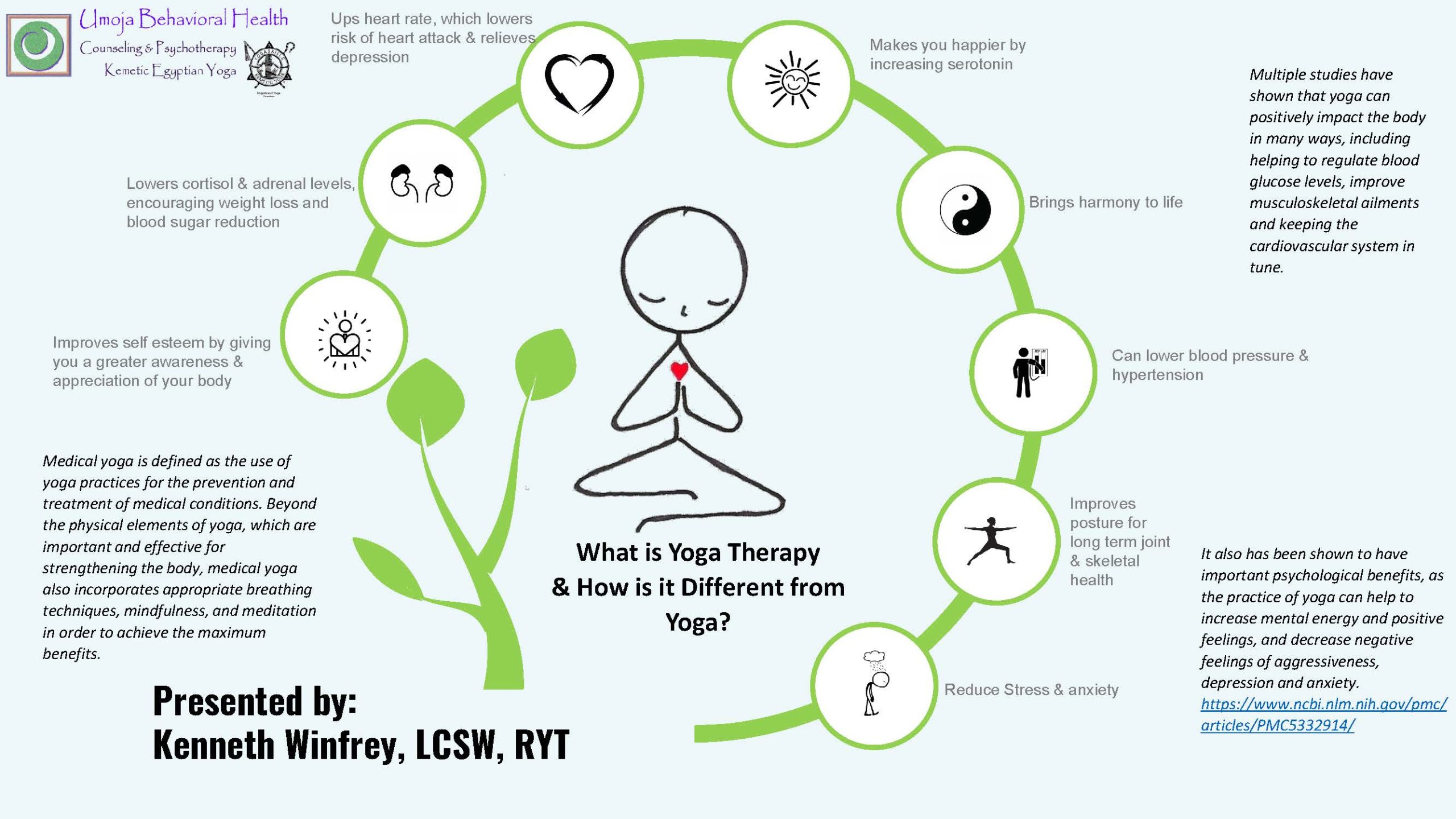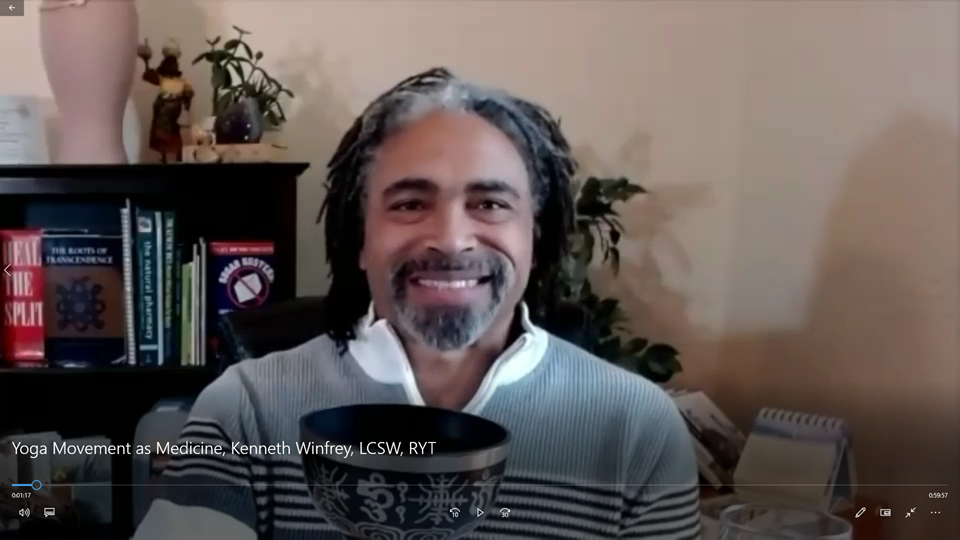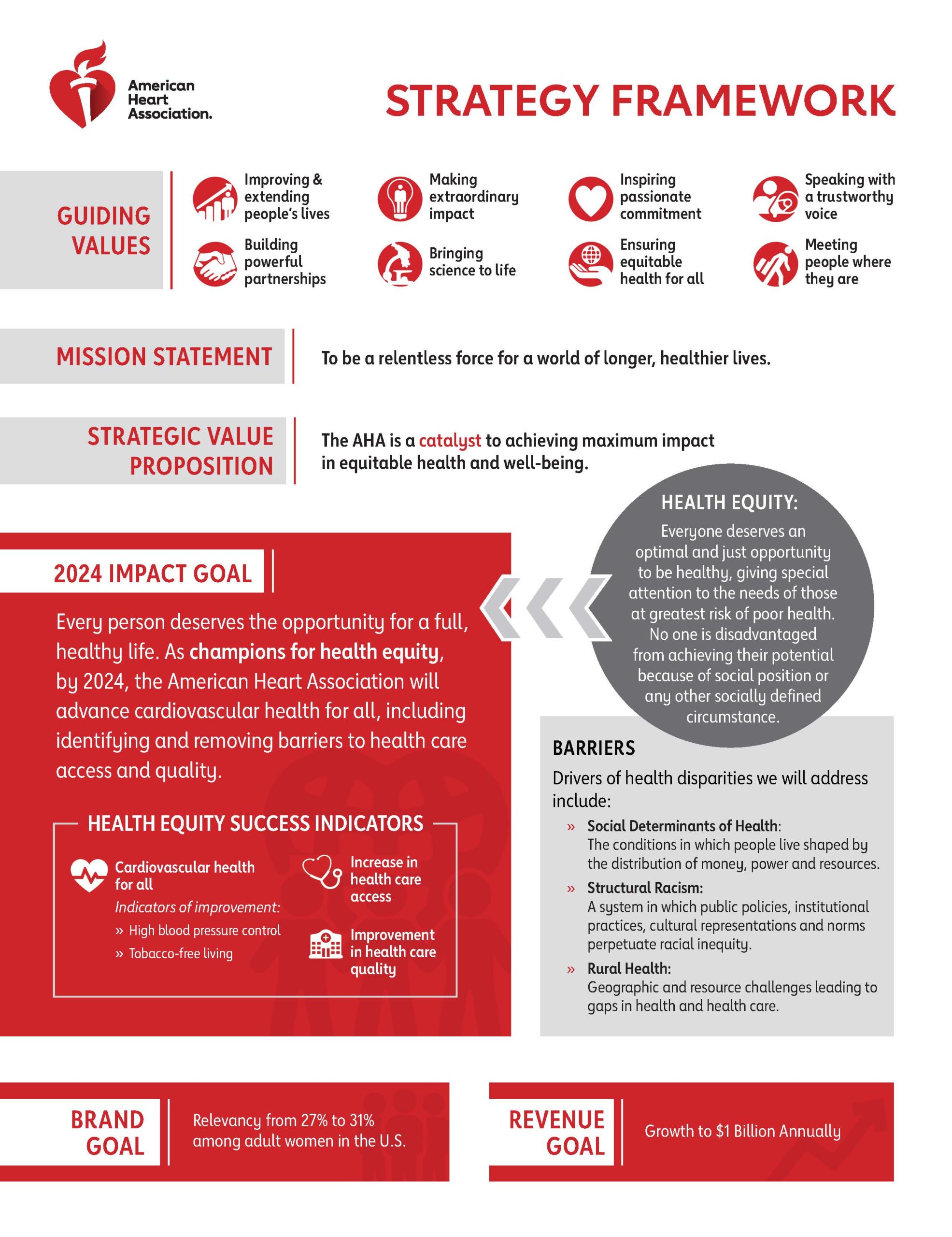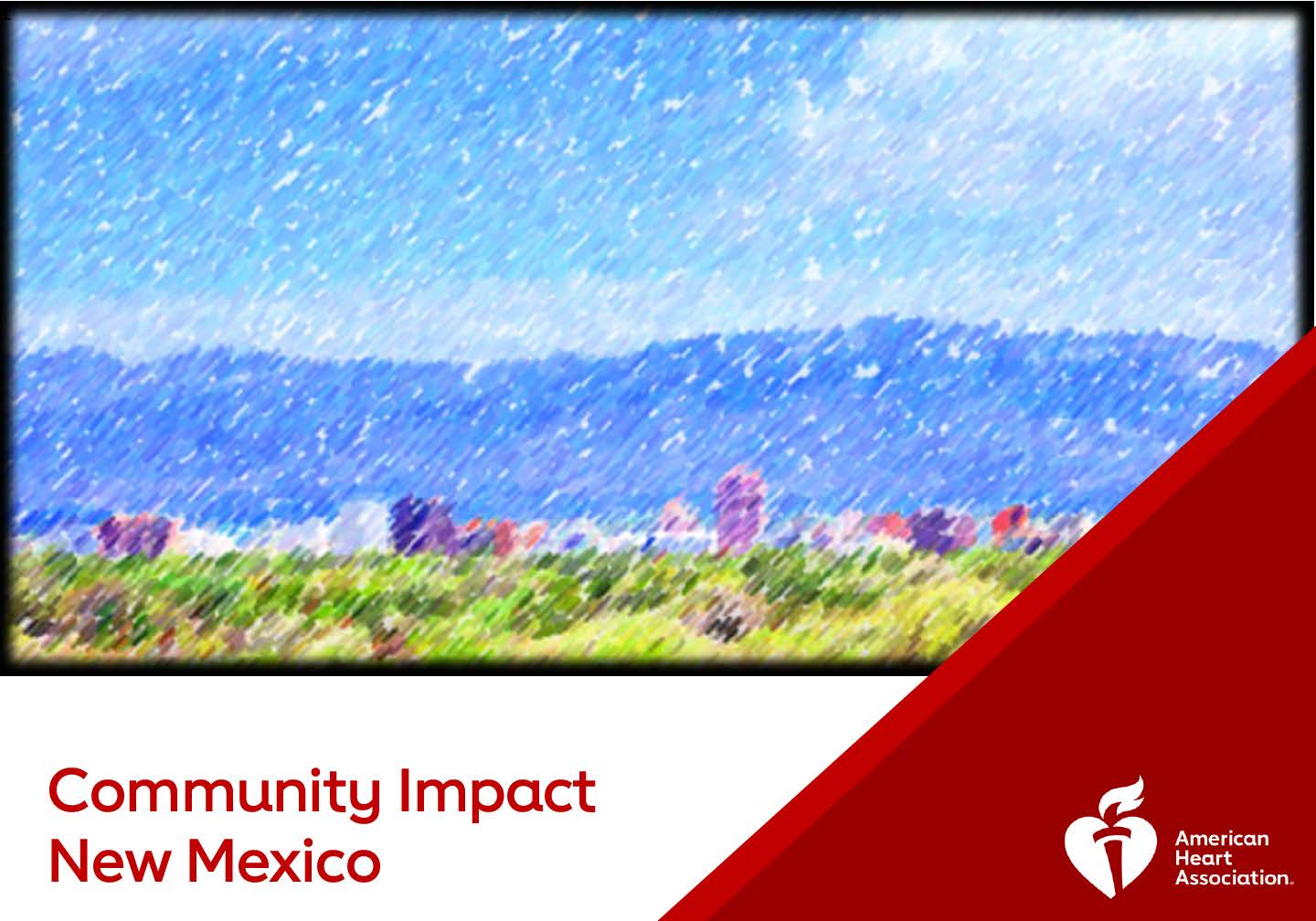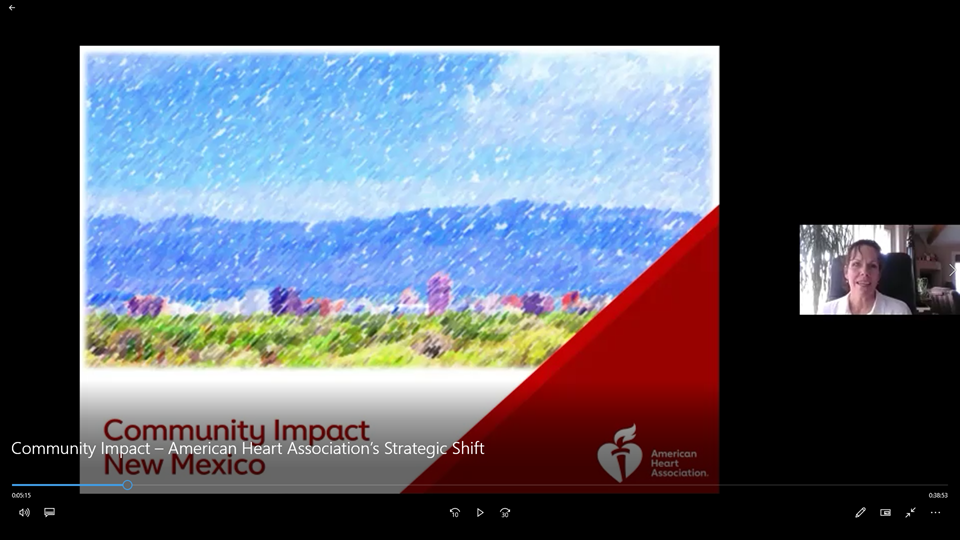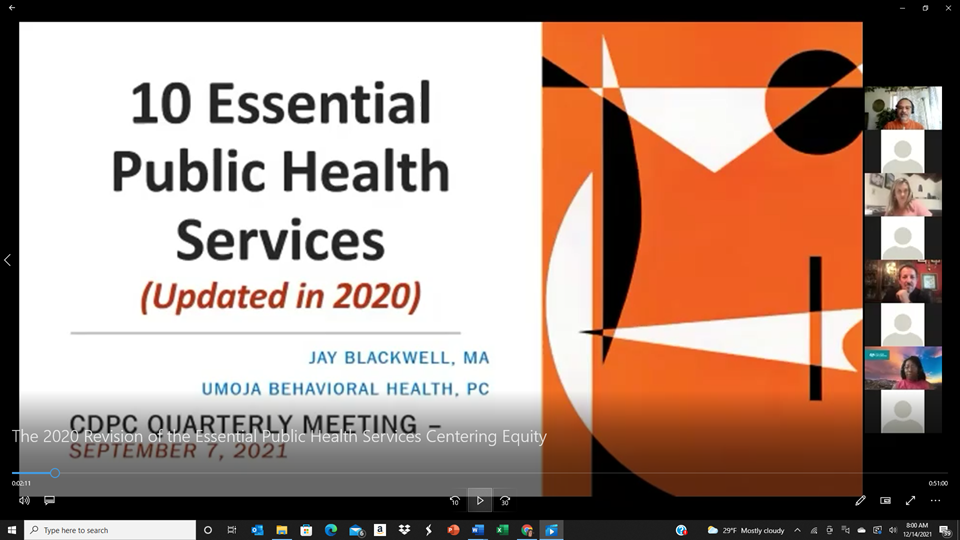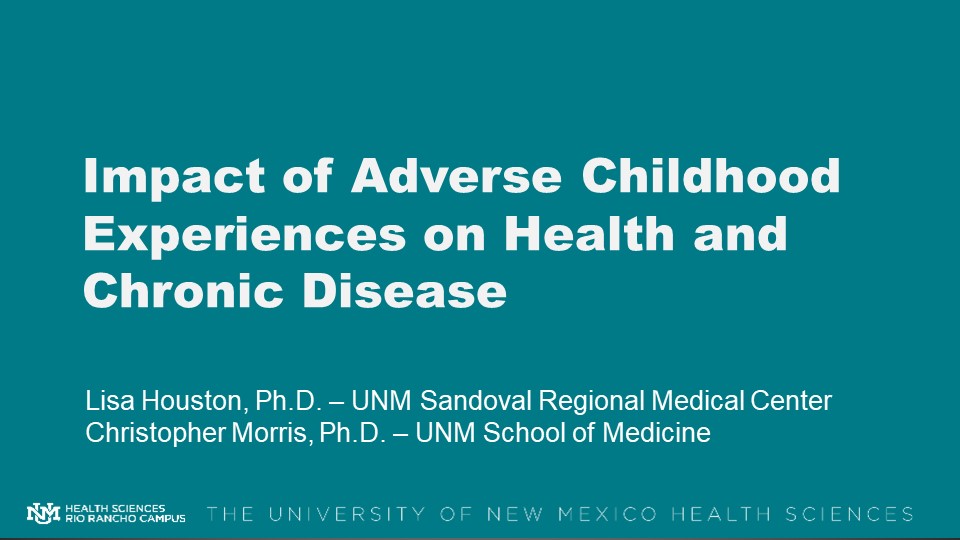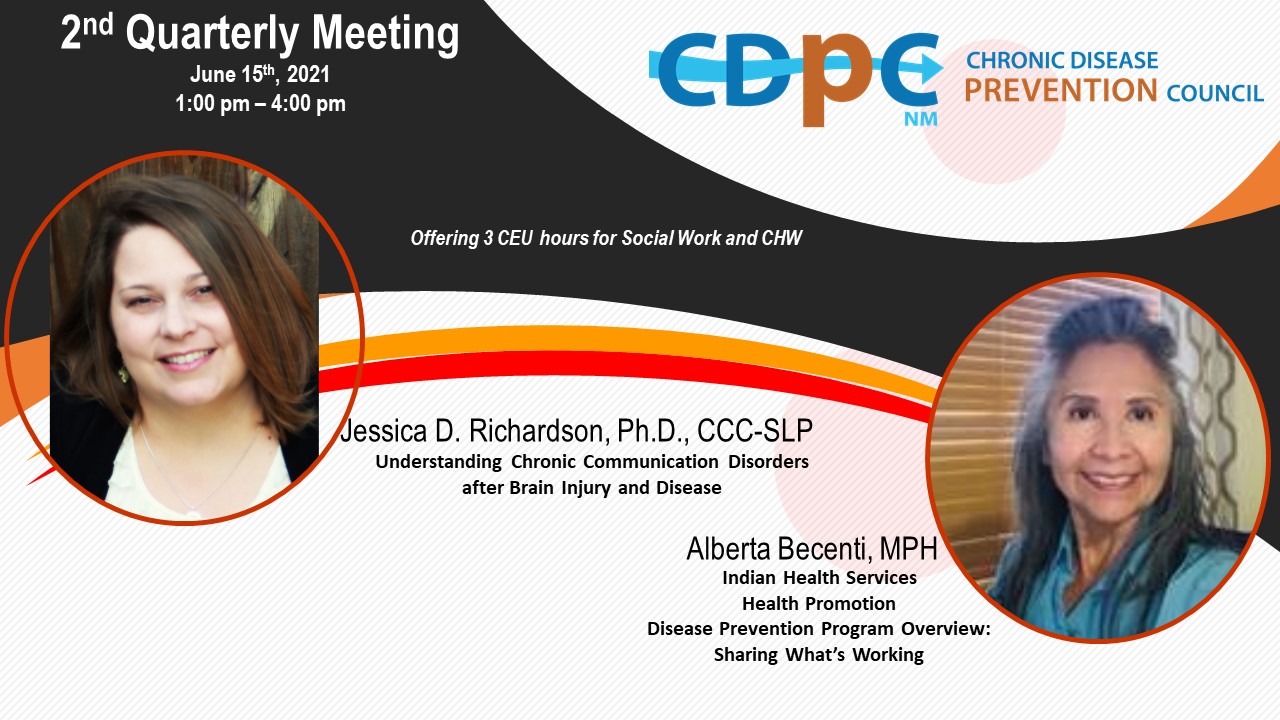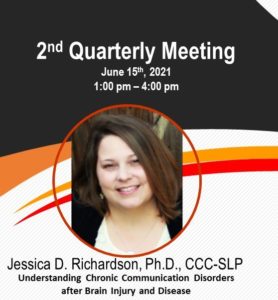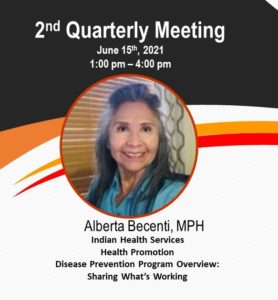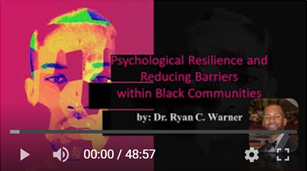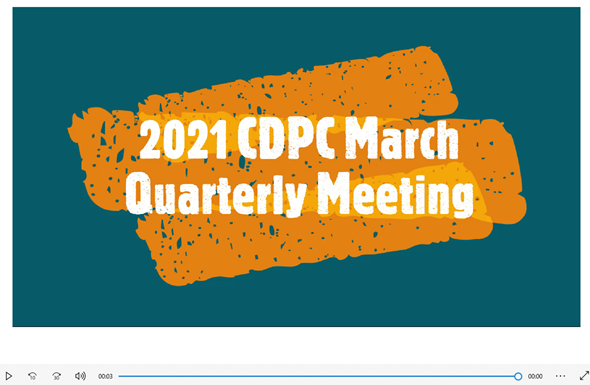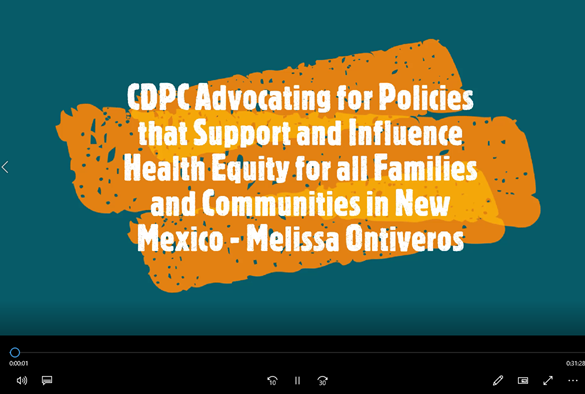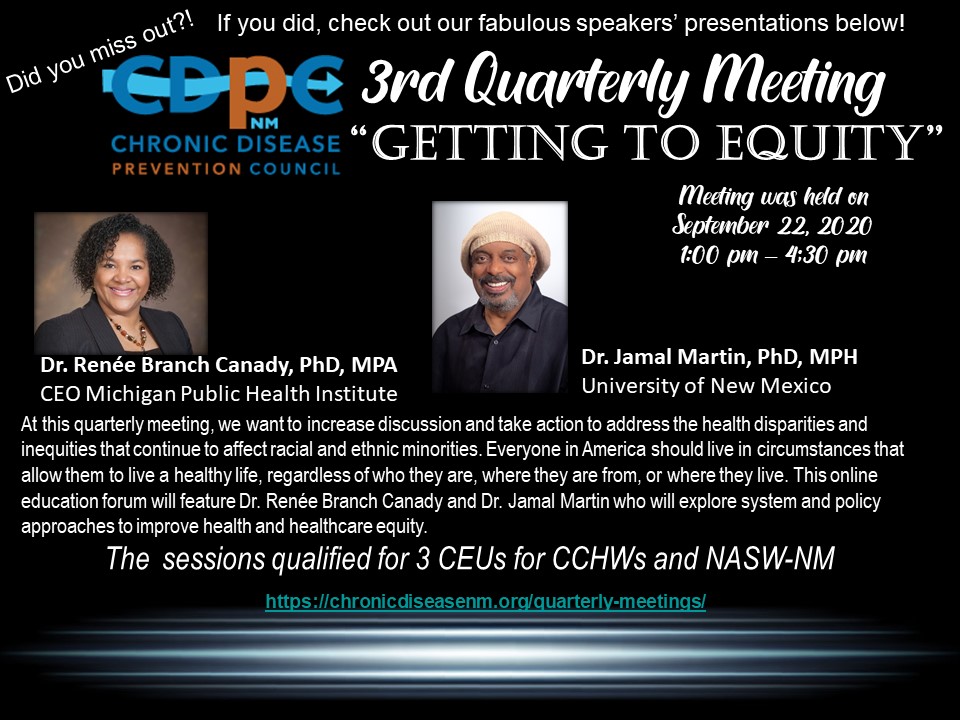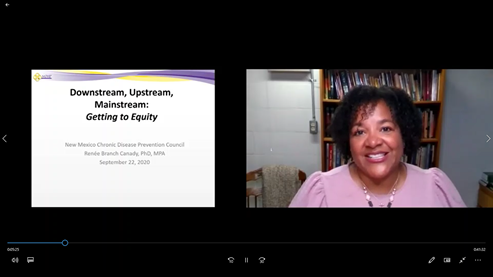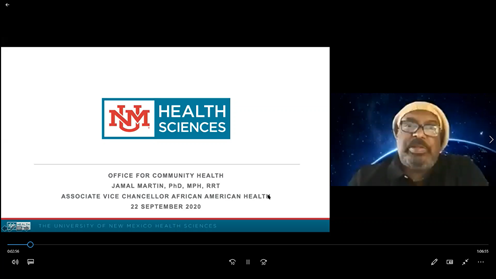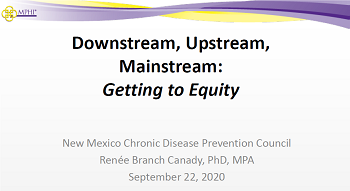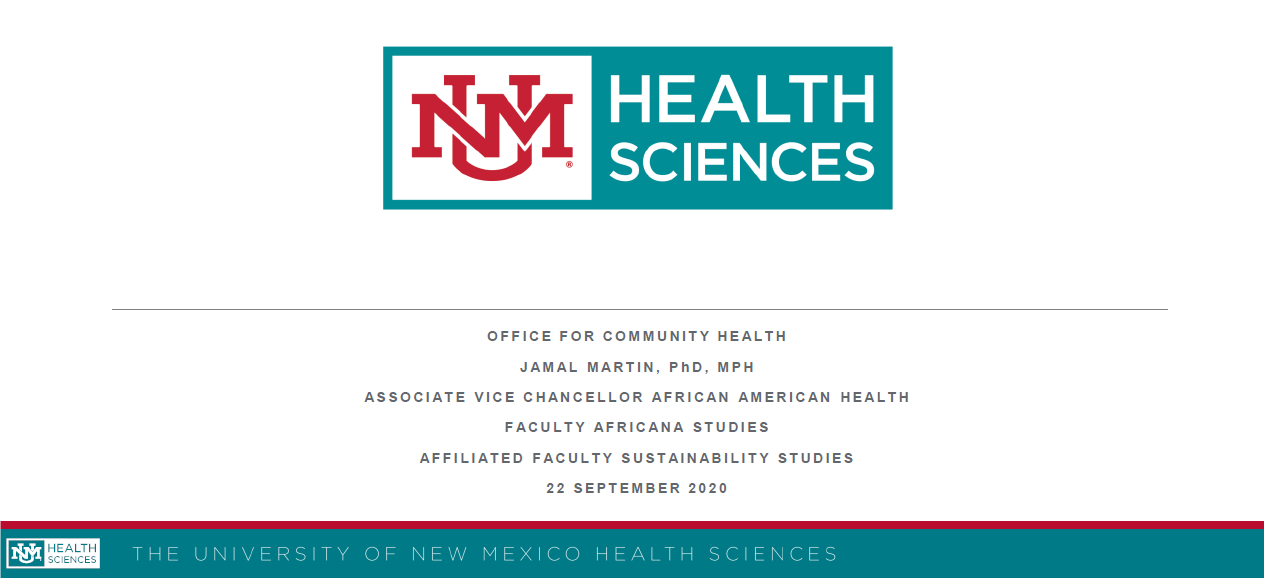
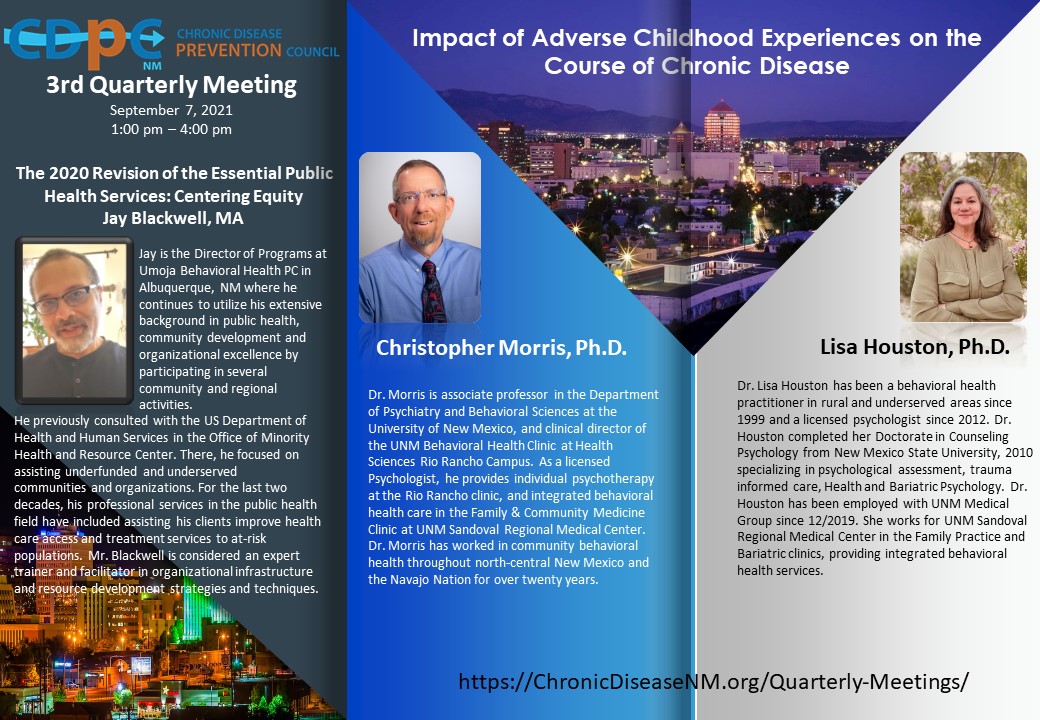
Click on images below to listen to the recorded presentations.
Click here for the slide presentation of the Impact of Adverse Childhood Experiences on Health and Chronic Disease
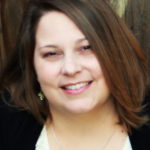
Jessica D. Richardson, Ph.D., CCC-SLP
Understanding Chronic Communication Disorders after Brain Injury and Disease
Jessica D. Richardson, Ph.D., CCC-SLP is an Associate Professor in the Department of Speech and Hearing Sciences at the University of New Mexico. She is the director of the Neuroscience of Rehabilitation Laboratory and serves as the outreach director for the Center for Brain Recovery and Repair. The desire to serve persons with brain injury and disease, and their family and friends, fuels all of her academic endeavors - research, teaching, and service. Her clinical research focus is on communication disorders following acquired brain injury or disease in adults and the development of more sensitive assessments and more powerful treatment approaches (including brain stimulation as an enhancer) that lead to improvements in life participation. She completed her B.S. at the University of Georgia in 2001 and her M.S. at the University of Arizona in 2003, after which she became a speech-language pathologist (SLP). Read more >>
Jessica's publications can be found here: https://www.ncbi.nlm.nih.gov/myncbi/12WPcJZAUeOAR/bibliography/public/
Health Promotion/Disease Prevention Overview: Sharing What’s Working
Alberta Becenti is the Public Health Advisor for the Health Promotion/Disease Prevention program and an acting consultant for the Health Education program for Indian Health Service Headquarters. She serves as a liaison between local communities (IHS, Tribal, urban), Area Office, and the Headquarters Health Promotion to support and enhance community capacity, establishing organizational networks, identifying resources, coordinating and conducting trainings. Provide leadership, direction, and advocacy in planning, developing, implementing, and evaluating the HP/DP program. She has work in the field of health promotion and wellness for more than 25 years and had received her Master of Public Health from the University of Oklahoma in Oklahoma City.
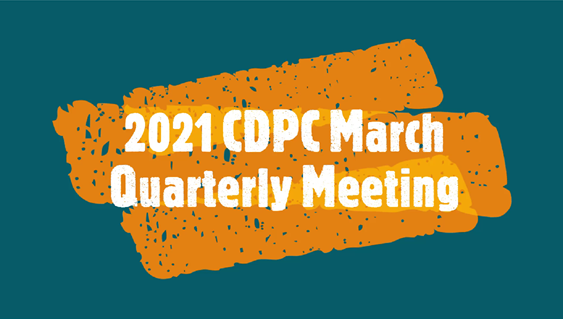
Dr. Ryan C. Warner
Psychological Resilience
and Reducing Barriers within Black Communities
This interactive discussion presented during the 2021 CDPC March Quarterly Meeting, March 23 2021.
RC Warner Consulting, LLC provides leadership development, diversity training, and wellness enhancement for a broad array of organizations and Fortune 500 corporations. We specialize in integrating psychological, multicultural, and evidenced-based principles to enhance organizational commitment and effectiveness. Using a dynamic approach, they offer memorable and engaging educational trainings on a broad array of topics, including, but not limited to diversity and inclusivity, unconscious bias, mental wellness, creating healthier habits, teamwork enhancement, disability, emotional intelligence, and leadership development.
Dr. Ryan C. Warner is a licensed psychologist, researcher, speaker, and consultant. He specializes in integrating psychological, multicultural, and evidenced-based principles to enhance team performance and effectiveness. His research interests involve PTSD and substance use, clinical health psychology, and the analysis of social forces affecting racial/ethnic minorities. He has conducted talks and trainings at both national and international levels, has been published in various peer review journals, and has served as a graduate-level instructor. As the Founder and Chief Executive Officer of RC Warner Consulting, LLC, Dr. Warner utilizes a tailored and interactive approach to accelerate change within small and large organizations around the globe.
Description of Training:
The Black community suffers from an increased rate of mental health concerns, including anxiety and depression. Research shows that individuals who experience mental health challenges have a high prevalence of comorbid chronic disease conditions. However, those who are psychologically resilient improve their ability to cope with chronic illnesses and enhance their overall well-being.
Outcomes of Training:
1) Identify mental health barriers Black communities may face
2) Describe comorbidities of mental disorders and chronic diseases
3) List strategies for mitigating stress and enhancing well-being
Advocating for Policies that Support and Influence Health Equity
for New Mexico Families and Communities - Melissa Ontiveros
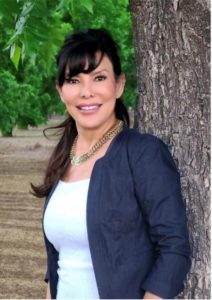 Melissa Ontiveros, MA, MCJ, MPA
Melissa Ontiveros, MA, MCJ, MPA
Melissa, MA, MCJ, MPA is the Director of Thriving Families at the Community Action Agency of Southern New Mexico. She received a dual BA in Political Science and Sociology from UNM. After working as a case manager in a gang intervention and prevention program at Youth Development Inc, Melissa returned to school to receive an MA in Family Therapy from U of P. She is a certified Developmental Specialist III, Early Interventionist, and Registered Behavioral Technician.
Melissa’s leadership and experiences come from various direct service roles including case manager, school counselor, mental and behavioral therapist, multi-systemic and problem sexual therapist, developmental specialist, early childhood education. After receiving a dual degree in Public Administration and Criminal Justice from NMSU, she worked as the Director of Adult Services for a DD Waiver Program at Tresco Inc., Health Promotion Program Manager for the Department of Health, and president of New Mexico Public Health Association for the past three years.
Melissa, serves on NMFirst Board, Co-Chair of the LC3 Behavioral Health Coalition in Las Cruces, Co-Lead of the Housing Taskforce for the Resilience Leadership Collaborative, American Public Health Association (Climate and Health Equity Board and Community on Social Responsibility Boards), and other boards working on building healthy communities in New Mexico and US.
Her goal is to facilitate collaboration and partnership with the state, academic institutions, and other agencies to create systemic change. She hopes to be a leader, advocating for policies that will support and influence health equity for all families and communities in New Mexico.
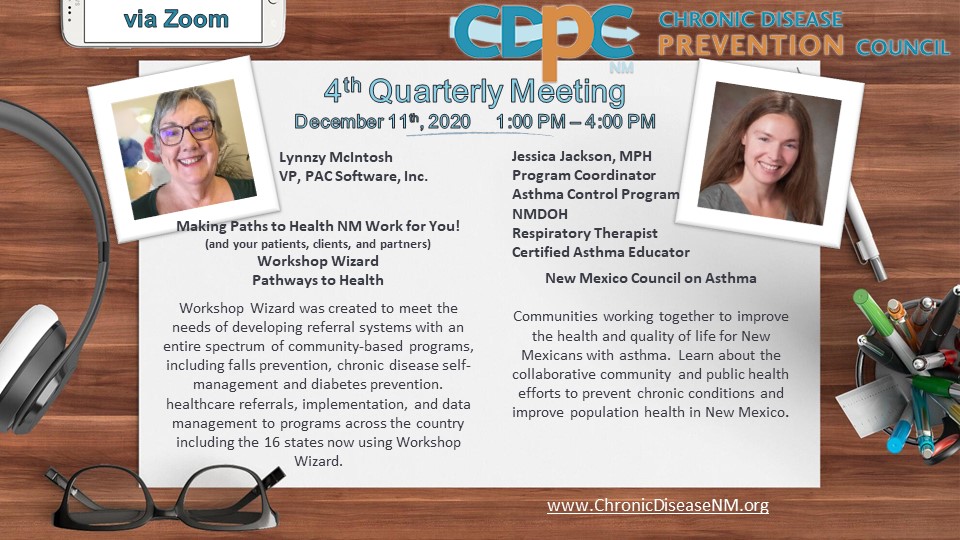
Lynnzy McIntosh has worked with integrating evidence based programming in to healthcare since 2008 when she joined the staff of the Consortium for Older Adult Wellness (COAW) in Colorado; eventually serving as Executive Director. While at COAW, Workshop Wizard was created to meet the needs of developing referral systems with an entire spectrum of community based programs, including falls prevention, chronic disease self-management and diabetes prevention. Her friendship with the New Mexico Department of Health Diabetes Prevention and Control Program began in 2010 and expanded to include Workshop Wizard in 2015. As Vice President of PAC Software, Inc. she continues as a contractor to the New Mexico Department of Health and brings her experience in healthcare referrals, implementation, and data management to programs across the country including the 16 states now using Workshop Wizard.
Jessica Jackson is the Program Coordinator for the New Mexico Department of Health Asthma Control Program (NMDOH ACP). She has a Master’s of Public Health (MPH) degree from the University of Massachusetts, Amherst and is a Registered Respiratory Therapist and Certified Asthma Educator. Prior to her role at NMDOH, Jessica worked as a Respiratory Therapist in an outpatient clinic in the San Francisco Bay area where she performed pulmonary function testing and provided asthma and COPD education and tobacco cessation services to patients with lung disease and other chronic conditions. She also has several years of experience working as a Respiratory Therapist in regional hospitals and acute care settings. Jessica is committed to contributing to collaborative community and public health efforts that prevent chronic conditions and improve population health in New Mexico.
via Zoom
At this quarterly meeting, we want to increase discussion and take action to address the health disparities and inequities that continue to affect racial and ethnic minorities. Everyone in America should live in circumstances that allow them to live a healthy life, regardless of who they are, where they are from, or where they live. This online education forum will feature Dr. Renée Branch Canady and Dr. Jamal Martin who will explore system and policy approaches to improve health and healthcare equity.
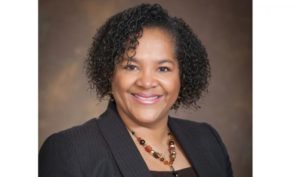 Dr. Renée Branch Canady, PhD, MPA, CEO, Michigan Public Health Institute
Dr. Renée Branch Canady, PhD, MPA, CEO, Michigan Public Health Institute
Dr. Renée Branch Canady serves as Chief Executive Officer (CEO) of MPHI; a unique public trust dedicated to advancing population health through public health innovation and collaboration. In this role she leads the strategic direction of the organization as they strive to build a world-class infrastructure to support the Institute’s diverse and progressive program areas and projects, while establishing and maintaining stakeholder relationships.
Prior to joining MPHI in 2014, Dr. Canady served as Health Officer and Director of Ingham County Health Department, located in Lansing, Michigan. In that role she oversaw the county’s statutory responsibility to protect and promote the health of county residents and lead the expansion of the innovative and nationally known, Ingham County Health Equity Social Justice program.
Dr. Canady has held faculty and leadership positions within the College of Nursing and the College of Medicine, Program for Public Health at Michigan State University where she developed a research trajectory in health disparities and continues to serve as an assistant professor in the Division of Public Health.
Dr. Canady has been recognized as a national thought leader in the areas of health inequities and disparities, cultural competence, and social justice. She has published and presented broadly on these topics and her passion for this work is evident in her personal, academic, and professional life. Dr. Canady has been highly influential in broadening the discussion of health equity and social justice while serving on numerous national boards, review panels, and advisory groups.
She has served and currently serves on numerous advisory boards including the Robert Wood Johnson Foundation (RWJF) County Health Rankings Scientific Advisory Group, the National Collaborative for Health Equity Advisory Committee, the Institute for Alternative Futures Public Health 2030 project Advisory Group, and the National 10 Essential Public Health Services Task Force, whose charge is to update this foundational public health framework.
Dr. Canady serves as the Treasurer on the Board of Directors of the National Network of Public Health Institutes (NNPHI) and as vice-president on the Ascension Health System Michigan Market Board. Most recently she was appointed by Governor Gretchen Whitmer to serve on the State of MI Coronavirus Task Force on Racial Disparities.
Most recently, Dr. Canady has been an outstanding public health advocate, researcher, educator, and facilitator. She earned her PhD in Medical Sociology from Michigan State University, a master’s degree in Public Administration from Western Michigan University and a bachelor’s degree in Public Health Nutrition from the University of North Carolina at Chapel Hill.
 Dr. Jamal Martin
Dr. Jamal Martin
Education
• PhD, Community Health Education , 1998 to 2002, The University of New Mexico
• MPH, Community Health Development , 1986 to 1987, University of Hawaii at Manoa
• BA, Human Services and Health Sciences , 1983 to 1985, Hawaii Pacific University
J.E. Jamal Martín, born in Norfolk in 1954, educated at the New School for Social Research, completed his undergraduate degree at Hawaii Pacific College and graduate degree at the University of Hawaii’i at Manoa with postgraduate work at the University of Michigan. He has conducted interdisciplinary research, taught and practiced in local, national and global settings in nursing, medicine and international health. He joined the faculty of the University of New Mexico in 2010 and received his PhD from that institution in 2002. His readings in the ‘black experience’ started in 1968 at the Schomburg Collection in Harlem, NYC and more extensively with postdoctoral area studies in the Africa and Middle East Reading Rooms at the U.S. Library of Congress. Alongside his complex problem solving (interdisciplinary) research and teaching interests lies African-Iberian historiography, the Moors, the ancient manuscripts of fabled Timbuktu, the study of Islam in Africa and the Americas, and Africa in antiquity.
As an African and African diaspora scholar and public health scientist-practitioner, moving from infectious and chronic disease epidemiology to psychosocial and forensic epidemiology, his praxis now includes global health justice and diplomacy, human rights and the use of critical legal theory in international institutional law. His investigations comment on the interactions between Pax Africana (Mazrui, 1967, 1980, 1983, and 1984); The Racial Contract (Mills, 1997), Pathologies of Power (Farmer, 1999, 2005); Structural Violence (Galtung, 1969; Ho, 2007); and his own research on trauma-related syndromes violence/aggression and stress (Martin, 2002, 2011).
For a listing of courses taught by Dr. Martín within Africana Studies, click here. He has also designed ‘Blacks in Science and Technology,’ and ‘Structural Violence and Health Diplomacy’ that fall under historical investigation and social and structural analysis. Additionally he teaches Health Promotion, Disease Prevention and Control, Introduction to Health Equity for Medical Students, Global Health and Epidemiology, and coursework under the Diversity of Human Experience within Family & Community Medicine within the School of Medicine, University of New Mexico.
More Info to Come!
~~~~~~~~~~~~~~~~~~~~~~~~~~~~~~~~~~~~~~~~~~~~~~~~~~~~~~~~~~~~~~~~~~~~~~~~~~~~~~~~~~~~~~~~~~~~~~~~~
QUARTERLY MEETING - Second Quarter (6/23/2020)
Due to Covid19, the second quarterly meeting was held as an online event.
Prevent Diabetes Workgroup Overview – Lisa Taylor and Susan Simons
~~~~~~~~~~~~~~~~~~~~~~~~~~~~~~~~~~~~~~~~~~~~~~~~~~~~~~~~~~~~~~~~~~~~~~~~~~~~~~~~~~~~~~~~~
New Mexico Shared Strategic Plan Discussion: 2020 Priority Goals and A Virtual World Café Breakout Sharing Session John Linney, Executive Director, Impact Coaching and Speaking Inc., Impact Associates
~~~~~~~~~~~~~~~~~~~~~~~~~~~~~~~~~~~~~~~~~~~~~~~~~~~~~~~~~~~~~~~~~~~~~~~~~~~~~~~~~~~
Asthma and Understanding Cultural and Language Differences in Families: A Photovoice Project
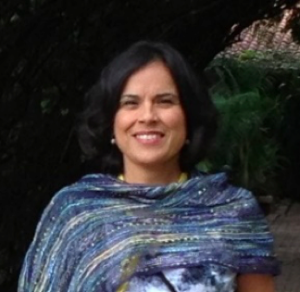 Maria Otero, Executive Director NMCWHA and Co-Founder Nuestra Salud
Maria Otero, Executive Director NMCWHA and Co-Founder Nuestra Salud
Overview:
- Increased cultural understanding about Hispanic families who have children with asthma.
- The Photovoice method.
- Identifying one environmental factor, one key stakeholder, and one key resource important to asthma control among Hispanic, Spanish-speaking New Mexico communities.
~~~~~~~~~~~~~~~~~~~~~~~~~~~~~~~~~~~~~~~~~~~~~~~~~~~~~~~~~~~~~~~~~~~~~~~~~~
Population Health and Health Disparities - Frances E. Ashe-Goins, PhD (hon), MPH, BSN, RN, FAAN
Overview:
- Population health has been defined as "the health outcomes of a group of individuals, including the distribution of such outcomes within the group".
- Population health is an art, process, science and a product of enhancing the health condition of a specific number of people within a given geographical area
- Population health as an art, simply means that it is geared towards equal health care delivery to an anticipated group of people in a particular geographical location
Health disparities are differences in the incidence, prevalence, and mortality of a disease and the related adverse health conditions that exist among specific population groups.
- These groups may be characterized by gender, age, race or ethnicity, education, income, social class, disability, geographic location, or sexual orientation.
- Multiple factors contribute to racial/ethnic health disparities such as socioeconomic factors, lifestyle behaviors, social environment, and access to preventive health-care services
~~~~~~~~~~~~~~~~~~~~~~~~~~~~~~~~~~~~~~~~~~~~~~~~~~~~~~~~~~~~~~~~~~~~~~~~~~~~~~~~~~~~~~
QUARTERLY MEETING- First Quarter (3/31/2020) - (Due to Covid19, the first quarterly meeting was held as an online event.)
NMSSP Discussion - John Linney, Executive Director, Impact Coaching and Speaking Inc.
~~~~~~~~~~~~~~~~~~~~~~~~~~~~~~~~~~~~~~~~~~~~~~~~~~
Prevention is Better Than A Cure - Dr. Ifeoma Achusim, Registered Nurse, Pharmacist, and Owner of Abundent Healthcare LLC
Overview: Coronavirus is a real threat as the number of infected cases continues to grow. Those with chronic health conditions including; heart disease, lung disease and diabetes are at higher risk of being infected more severely. How do we protect ourselves in this time of uncertainty?
~~~~~~~~~~~~~~~~~~~~~~~~~~~~~~~~~~~~~~~~~~~~~~~~~~
Telemedicine in a Perfect Storm: COVID-19 and Chronic Disease - Dale Alverson, MD Founder of UNM Center for Telehealth and First Board Chair for the NM Telehealth Alliance
Overview: Review the concept of Telemedicine, discuss steps in operationalization and integration of telemedicine into healthcare services, determine how this is relevant to chronic disease prevention and management, as well as a state, national, and International perspective.
~~~~~~~~~~~~~~~~~~~~~~~~~~~~~~~~~~~~~~~~~~~~~~~~~~
COVID-19 and The Department of Health – Thomas Massaro, MD, Department of Health
Overview: Learn what the Department of Health is doing during this pandemic and their plan of action for the future.
2019 Quarterly Meetings:
December 2019 "Community Program Updates"
Presentations
- Tobacco Use Prevention and Control Program Data Update by James Padilla
- Building Healthy Military Communities (BHMC) Statewide Update by Valentina Livingston
- Spring Street Exchange - SDOH - Local and National Perspectives by Roci Gainey-Graham
- Atrisco Heritage High School, Evolvement Program by No Minor Sale Campaign
September 2019 "Social Determinants of Health"
Presentations and Trainings
- Indigenous Health Leadership Institute, Community Asset Mapping by Shannon Fleg
- Health Literacy Coalition by Audrey Riffenburgh and Kathryn Anderson
- Social Marketing Training by Chris Hollis
June 2019 "Social Determinants of Health"
Presentations
- Ujima Behavioral Health: Collective Works and Responsibility - Making Space and Information a Community-Owned Asset by Kenneth Winfrey
- Comagine Health: Heart Disease and Stroke Workgroup Introduction by Edy Taylor
- American Cancer Society Cancer Action Network: Success! E-cigarettes Included in the Clean Indoor Air Law by Marissa Trujillo
2018 Quarterly Meetings:
“Strategies that Support and Reinforce Healthful Behaviors”
Presentations
- Not Your Gramma’s Indicator: Evaluating Native Children’s Health
- An Indigenous Approach to Native American Children’s Health
- Preventing Chronic Disease at the Roundhouse: 2018 Legislative Preview
- Community Health Maps
March 2018 Quarterly Meeting
June 2017 Quarterly Meeting – “Community-Clinical Linkages Enhancement”
June 2017 Quarterly Meeting Minutes
December 2016 Quarterly Meeting – “Strategies that Support and Reinforce Healthful Behaviors”
December 2016 Quarterly Meeting Minutes
September 2016 Quarterly Meeting – “Heath Systems Interventions”
September 2016 Quarterly Meeting Minutes
March 2016 Quarterly Meeting – “Community-Clinical Linkages Enhancement”
March 2016 Quarterly Meeting Minutes
June 2016 Quarterly Meeting – “Strategies that Support and Reinforce Healthful Behaviors”
June 2016 Quarterly Meeting Minutes
December 2015 Quarterly Meeting – “Strategies that Support and Reinforce Healthful Behaviors”
December 2015 Quarterly Meeting Minutes
Albuquerque Cardiovascular Disease 2015 Statistics
New Mexico Heart Disease Statistics 2014 American Heart Association
September 2015 Quarterly Meeting – “Health Systems Interventions”
September 2015 Quarterly Meeting Minutes
Quarterly Meeting 9-15-15 Agenda
June 2015 Quarterly Meeting – First Annual Rural Health Conference Presentations
Preventive Health, Pharmacist Perspective
Food Access in Rural and Frontier Areas
Well Man Care in Rural Settings
The Recruitment and Retention of Providers in Rural Areas
March 2015 Quarterly Meeting – Community-Clinical Linkages Workshop
Community Clinical Linkages Overview Presentation
Community and Clinical Engagement Initiatives
How a Quality Improvement Approach Can Improve Can Improve Community Clinical Linkages
Meeting Families of Color Where They Live-Thomas

